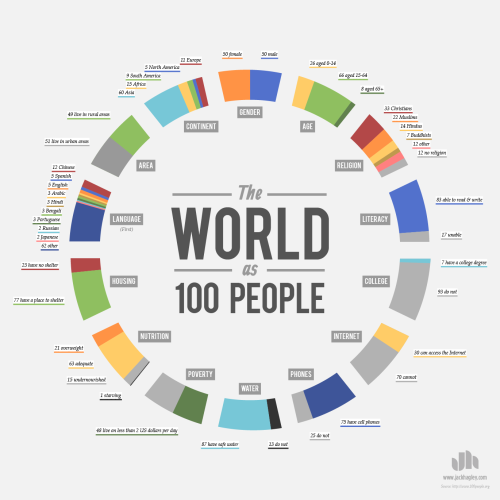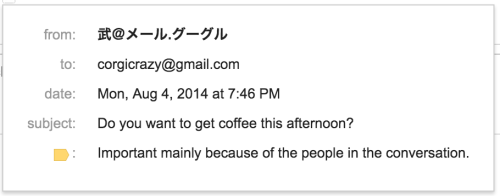Here is a really cool visualization of the world’s 7 billion population. From the quality of life perspective, it’s mind-blowing to see 48 people out of a 100 living on less than $2 per day. From the technology perspective, the upcoming mobile boom is obvious – 30 people have access to the Internet, while 75 have a cell phone.
Tag: world
“CHASING ICE” captures largest glacier calving ever filmed
International Electrotechnical Commission : World Plugs
International Electrotechnical Commission has a very handy (especially before travelling to a foreign country) list of different plugs (a total of 14 at the time of this writing), mapped to countries of the world. So if you don’t have one of these:
make sure you check the list of adapters & converters worth buying before you fly out. And while on the topic of this great variety, IEC also explains why there are so many and if this annoyance will ever be sold:
The IEC issued its International Standard for a universal plug in the 1970s; so far it has been adopted by Brazil and South Africa. It is unlikely that there will be a run on the standard in the near future. Literally hundreds of millions of plugs and sockets have been installed and who would convince a country to invest now in changing its whole infrastructure?
Most likely the future will lie with solutions such as the USB plug or possibly a multi-plug that can accommodate many different plugs, or even new technologies such as LVDC (low voltage direct current) or wireless charging mechanisms.
Global email in Gmail. Bad idea.
Gmail blog reports that Google is working on a more global email. The first step is internationalized email addresses, like this:
As someone who worked in international environments for years, I strongly dislike this idea. There is a whole array of issues related to this: readability of the email address (yes, read it!), display issues (do you have the font with all the necessary characters?), writing email address (searching through the addressbook, for example), or even copy-pasting an email address (have you tried copy-pasting something English strings from Hebrew or Arabic documents? Now you’ll be copy-pasting international email addresses from English documents – so much fun!). On top of that, all the usual things related to SPAM filters, trust issues (is this a company, free email hosting, or a personal domain?), etc. Can you spell out this email address over a phone? How about typing it on the mobile phone? Do you even know in which language it is?
Using non-accented Latin characters is a pain for all those people who don’t speak English. But it worked nonetheless for the last few decades. Now we are heading towards the future, where that pain won’t be limited to those who don’t read English, but to everyone. As you can’t really learn all the languages of the world, or control which language email addresses are making it into your inbox. Remember, that just because the email address is in a given language, it doesn’t mean that the content of the email is in the same language.
On top of that, we’ve tried that already with the international URLs. See how well that worked out. Yeah, some people sure use them. But try copy-pasting this URL around and I guarantee you’ll end up with a whole bunch of long and cumbersome escaped strings. The same or similar fate will hit the emails…
Travel by drone
Travel by drone – watch videos from all around the world, recorded by drones.


